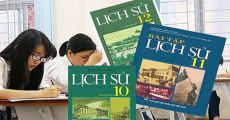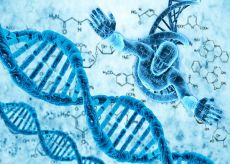Đề thi giữa HK1 môn Tiếng Anh 9 năm 2023 - 2024
Trường THCS Thạch Mỹ Lợi
-
Mark the letter A, B, C, or D to indicate the word that differs from the other three in the position of the primary stress in each of the following questions.
Câu 1:
A. private
B. protect
C. reform
D. regard
-
Câu 2:
A. accurate
B. important
C. endanger
D. erosion
-
Mark the letter A, B, C, or D on your answer sheet to indicate the word(s) OPPOSITE in meaning to the underlined word(s) in each of the following questions.
Câu 3:
Some of the passengers looked green around the gills after the trip! Their faces turned pale.
A. confident
B. attractive
C. energetic
D. exhausted
-
Câu 4:
No one is quite sure why Walt Disney dressed the mouse in the shorts with two buttons and gave him the yellow shoes.
A. wore out
B. made up
C. took off
D. put on
-
Mark the letter A, B, C, or D to indicate the word whose underlined part differs from the other three in pronunciation in each of the following questions.
Câu 5:
A. conserved
B. borrowed
C. invited
D. complained
-
Câu 6:
A. academic
B. behave
C. grade
D. examination
-
Mark the letter A, B, C or D to indicate the correct answer to each of the following questions.
Câu 7:
You couldn't give me a helping hand, ___________?
A. Do you
B. could you
C. don't you
D. couldn't you
-
Câu 8:
The telephones ________________ by Alexander Graham Bell.
A. invented
B. is inventing
C. was invented
D. is invented
-
Câu 9:
We should make full use __________ the Internet as it is an endless source of information.
A. from
B. in
C. of
D. with
-
Câu 10:
The better the quality of health care, ______________ the life expectancy.
A. the more high
B. the higher
C. the highest
D. higher
-
Câu 11:
She has just bought ________________ .
A. a brand-new beautiful Swiss watch
B. a Swiss beautiful brand-new watch
C. a Swiss brand-new beautiful watch
D. a beautiful brand-new Swiss watch
-
Câu 12:
When we came in, they ___________ the meal for us.
A. preparing
B. prepare
C. prepared
D. were preparing
-
Câu 13:
The house felt terribly cold _____________ the fact that the central heating had been on all day.
A. in spite of
B. because of
C. although
D. because
-
Câu 14:
_____________________ he will tell us about the match.
A. When he arrives
B. While he had arrived
C. Until he was arriving
D. After he arrived
-
Câu 15:
The existence of such a centre is expected to help ASEAN members facilitate assistance to any country ______________ by a disaster.
A. to hit
B. hit
C. hitting
D. hits
-
Câu 16:
WHO's main activities are carrying out research on medical _______________ international health care.
A. development
B. developing
C. develops
D. develop
-
Câu 17:
Jack has an amazingly ___________memory and can easily recall the capitals of three hundred different countries in the world.
A. attentive
B. reactive
C. tentative
D. retentive
-
Câu 18:
Such approaches should be supported and mainstreamed in health interventions in order to ________ positive behavior change.
A. bring about
B. hold up
C. set off
D. put off
-
Câu 19:
We have decided to _____________ our research into environmental waste to ensure high health standards in this city.
A. exaggerate
B. outweigh
C. boost
D. broaden
-
Câu 20:
Winning the cup in 1998 was just a ___________ in the pan - they haven't won the match since then.
A. blaze
B. flash
C. flame
D. light
-
Read the following passage and mark the letter A, B, C, or D to indicate the answer to each of the question.
Scientists have identified two ways in which species disappear. The first is through ordinary or "background" extinctions, where species that fail to adapt are slowly replaced by more adaptable life forms. The second is when large numbers of species go to the wall in relatively short periods of biological time. There have been five such extinctions, each provoked by cataclysmic evolutionary events caused by some geological eruption, climate shift, or space junk slamming into the Earth. Scientists now believe that another mass extinction of species is currently under way – and this time human fingerprints are on the trigger.
How are we are doing it? Simply by demanding more and more space for ourselves. In our assault on the ecosystems around us we have used a number of tools, from spear and gun to bulldozer and chainsaw. Certain especially rich ecosystems have proved the most vulnerable. In Hawaii more than half of the native birds are now gone - some 50 species. Such carnage has taken place all across the island communities of the Pacific and Indian oceans. While many species were hunted to extinction, others simply succumbed to the "introduced predators' that humans brought with them: the cat, the dog, the pig, and the rat.
Today the tempo of extinction is picking up speed. Hunting is no longer the major culprit, although rare birds and animals continue to be butchered for their skin, feathers, tusks, and internal organs, or taken as savage pets. Today the main threat comes from the destruction of the habitat of wild plants, animals, and insects need to survive. The draining and damming of wetland and river courses threatens the aquatic food chain and our own seafood industry. Overfishing and the destruction of fragile coral reefs destroy ocean biodiversity. Deforestation is taking a staggering toll, particularly in the tropics where the most global biodiversity is at risk. The shinking rainforest cover of the Congo and Amazon river basins and such place as Borneo and Madagascar have a wealth of species per hectare existing nowhere else. As those precious hectares are drowned or turned into arid pasture and cropland, such species disappear forever.
Source: Final Countdown Practice Tests by D.F Piniaris, Heinle Cengage Learning, 2010
Câu 21:
What does the passage mainly discuss?
A. The tempo of extinction of species today.
B. The two ways in which species disappear.
C. Deforestation as a major cause of mass extinctions of species.
D. Human activity and its impact on a mass extinction of species.
-
Câu 22:
The word “assault” in paragraph 2 is closest in meaning to __________
A. development
B. influence
C. attack
D. effort
-
Câu 23:
All of the following are mentioned as a form of habitat destruction EXCEPT ____________ .
A. cutting down forests
B. hunting rare birds and animals
C. destroying coral reefs
D. damming wetlands and rivers
-
Câu 24:
What was the main threat to biodiversity in Hawaii and other islands in the Pacific and Indian oceans until recently?
A. human assault on ecosystems
B. vulnerable rich ecosystems
C. tools used by human beings
D. hunters and introduced predators
-
Câu 25:
The word “them” in paragraph 2 refers to _____________
A. oceans
B. predators
C. humans
D. species
-
Câu 26:
Which is no longer considered a major cause of the mass extinction under way currently?
A. the building of dams across rivers
B. the killing of animals for their body parts
C. the destruction of habitats of species
D. the shrinking of rainforests in the tropics
-
Câu 27:
The word “butchered” in paragraph 3 is closest in meaning to __________
A. killed
B. cooked
C. traded
D. raised
-
Câu 28:
It can be inferred from the passage that ___________
A. it's impossible for scientists to identify the causes of mass extinctions of species
B. hunting is the major contributing factor that speeds up the extinction of species
C. the current mass extinction is different from the other five in that it is caused by humans
D. habitat destruction makes a minor contribution to the current mass extinction of species
-
Mark the letter A, B, C, or D to indicate the sentence that is closest in meaning to each of the following questions.
Câu 29:
There are possibly a hundred people at the meeting.
A. There should be a hundred people at the meeting.
B. There may be a hundred people at the meeting.
C. There must be a hundred people at the meeting.
D. There ought to be a hundred people at the meeting.
-
Câu 30:
"I will never forget our first dating," Anna said.
A. Ann said that she will never forget their first dating.
B. Ann said that she would never forget our first dating.
C. Ann said that she would never forget their first meeting.
D. Ann said that she will never forget our meeting.
-
Câu 31:
The last time she took her children to the zoo was two months ago.
A. She didn't take her children to the zoo two months ago.
B. She has taken her children to the zoo for two months.
C. She had two months to take her children to the zoo.
D. She hasn't taken her children to the zoo for two months.
-
Read the following passage and mark the letter A, B, C, or D to indicate the answer to each of the question.
There are many African tribes but, for many people, the Masai are the most well-known. They are famous for their bright red clothing and their ceremonies with lots of music and dancing. Probably, one of the most colorful ceremonies is the festival of "Eunoto," when the teenage boys of the Masai become men.
Eunoto lasts for many days and Masai people travel across the region to get to a special place near the border between Kenya and Tanzania. The teenage boys who travel with them are called "warriors." This is a traditional name from the past when young men fought with other tribes.
At the beginning of the ceremony, the teenagers paint their bodies while their mothers start to build a place called the "Osingira," a sacred room in the middle of the celebrations. Later, the senior elders from different tribes will sit inside this place and, at different times, the boys go inside to meet them. Later in the day, the boys run around the Osingira, going faster and faster each time.
The teenagers also have to alter their appearance at Eunoto. Masai boys' hair is very long before the ritual but they have to cut it off. In Masai culture, hair is an important symbol. For example, when a baby grows into an infant, the mother cuts the child's hair and gives the child a name. At a Masai wedding, the hair of the bride is also cut off as she becomes a woman. And so, at Eunoto, the teenage boy's mother cuts his hair off at sunrise.
On the final day, the teenagers meet the senior elders one more time. They get this advice: "Now you are men, use your heads and knowledge." Then, people start to travel back to their homes and lands. The teenagers are no longer warriors. They are adult men and now they will get married and have children.
Later in life, they will be the leaders of their communities.
(Adapted from "Life" by John Hughes, Helen Stephenson and Paul Dummett)
Câu 32:
What is the passage mainly about?
A. The journey by Masai teenage boys to the festival of Eunoto.
B. The reasons for the Masai's popularity over other African tribes.
C. The ceremony that marks the beginning of Masai boys' adulthood.
D. The importance of Eunoto in African people's lives.
-
Câu 33:
The word "them" in paragraph 3 refers to ___________
A. their mothers
B. the boys
C. different tribes
D. the senior elders
-
Câu 34:
The word “alter" in paragraph 4 is closest in meaning to __________
A. differ
B. distinguish
C. maintain
D. change
-
Câu 35:
According to the passage, what do the teenage boys do at Eunoto?
A. Changing their clothes
B. Fighting with other tribes
C. Painting their bodies
D. Receiving new names
-
Câu 36:
According to the passage, which of the following is TRUE?
A. The Masai teenage boys are given advice from senior elders before attending Eunoto.
B. Eunoto is the ceremony for both Masai teenage boys and girls.
C. The Masai teenage boys will become adults and get married after attending Eunoto.
D. Eunoto lasts for a day across the region between Kenya and Tanzania.
-
Mark the letter A, B, C, or D to indicate the sentence that best completes each of the following exchanges.
Câu 37:
George is asking his mum.
- George: "Is it okay if I stay at my friend Jack's house overnight?"
- George's mum: _________________. You haven't done your chores."
A. It's okay.
B. I don't think you can.
C. That's true.
D. Of course.
-
Câu 38:
Lucy is talking to Huong, her Vietnamese friend, about air pollution in Hanoi.
- Lucy: "Is there anything we can do about the toxic air pollution in Hanoi recently?"
- Huong: “________________ but the only thing we can do is to avoid outdoors and wear masks.”
A. That's easy.
B. I would say yes.
C. You're telling me.
D. I don't think I know the answer.
-
Mark the letter A, B, C, or D to indicate the sentence that best combines each pair of sentences in the following questions.
Câu 39:
We almost gave up hope. At that time, the rescue party arrived.
A. It was not until the rescue party arrived that we gave up hope.
B. Only after the rescue party arrived did we give up hope.
C. We were on the verge of giving up hope when the rescue party arrived.
D. Had the rescue party not arrived, we wouldn't have given up hope.
-
Câu 40:
John got a terminal illness. He couldn't get out of the bed on his own.
A. John's illness is too terminal for him to get out of the bed on his own.
B. No sooner had John's illness got terminal than he could not get out of the bed on his own.
C. Were it not for his terminal illness, John would be able to get out of bed on his own.
D. Such was John's illness that he could never get out of the bed on his own.














